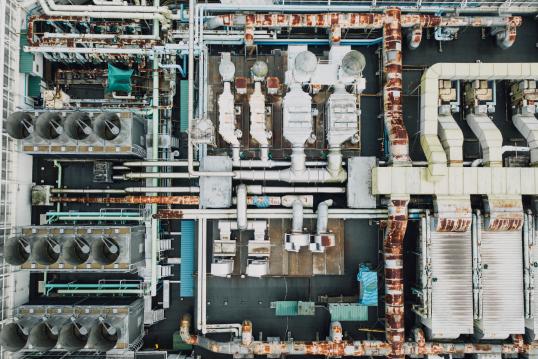The objective of the energy tax-refund scheme for energy-intensive industry under conditions is to support the costs of a company's intensive energy usage in any given industry. This helps to increase the international competitiveness of an industry, level the playing field for Dutch industries and incentivise reducing energy consumption. The tax refund applies to companies that consume more than ten million kWh of electricity per year and agree to participate in energy efficiency agreements. Companies that meet these requirements receive a refund of their energy costs. To receive the refund, companies must also set up Long-Term Agreements on Energy Efficiency, which includes providing yearly progress reports and drafting an energy-saving plan.
This subsidy was introduced in 1996, and currently, around 1,000 companies across 40 sectors participate in this tax-refund scheme. This subsidy benefits companies with energy-intensive activities and consumers benefit from lower product prices. Other countries that have a similar subsidy include Austria, Estonia, Finland, France, Germany, Italy, Latvia, Portugal, Slovenia and Sweden.
The budget impact of this subsidy was EUR 8 million in 2020. The cost of the subsidy has been increasing since 2016, but the average refund each company received each year between 2016 and 2020 was EUR 6.8 million. If the subsidy were to be removed and energy prices for these companies increased, energy consumption and demand would decrease.
The companies that participate in this tax-refund scheme represent 80% of the Netherlands’ industrial energy consumption and 25% of the country’s total energy consumption. The environmental impacts of this subsidy include effects related to energy usage, fossil fuel and greenhouse gas emissions. While the energy efficiency targets of the agreement have been met, the energy consumption and CO2 emissions from these industries have not decreased in the past 10 years. Despite the energy efficiency agreements required to participate, it is not enough of an incentive for companies to reduce energy usage, improve energy efficiency or switch to alternative energy sources.
The government regularly reviews their policies, and since 2020, there has been an effort to reform fossil fuel subsidies. However, no steps have been taken to date. The Dutch government has created targets to reduce greenhouse gas emissions, phase out fossil fuel projects and increase renewable energy capacity. Despite the negative environmental impacts of energy taxation schemes, some industry sectors may still receive energy subsidies. If the subsidy will be reformed, it is suggested to include tighter requirements for the Long-Term Agreements, gradually reform the subsidy and push for a faster shift towards renewable energy sources.
More information on the energy tax-refund scheme for energy-intensive industry and other candidates for reform in the Netherlands and other Member States can be found in the country case studies and factsheets compilation.

